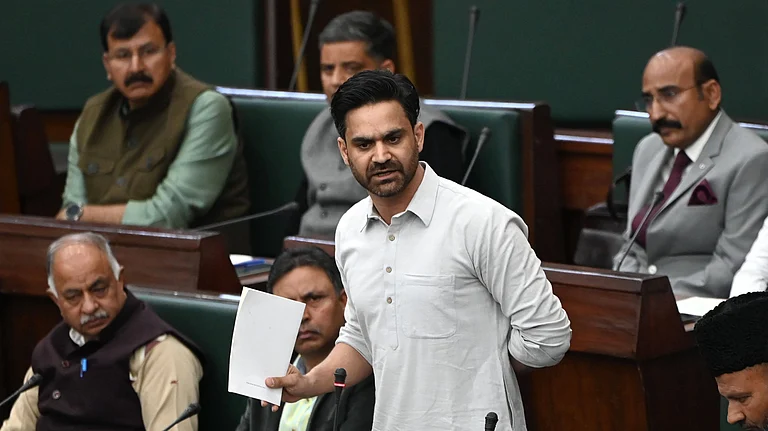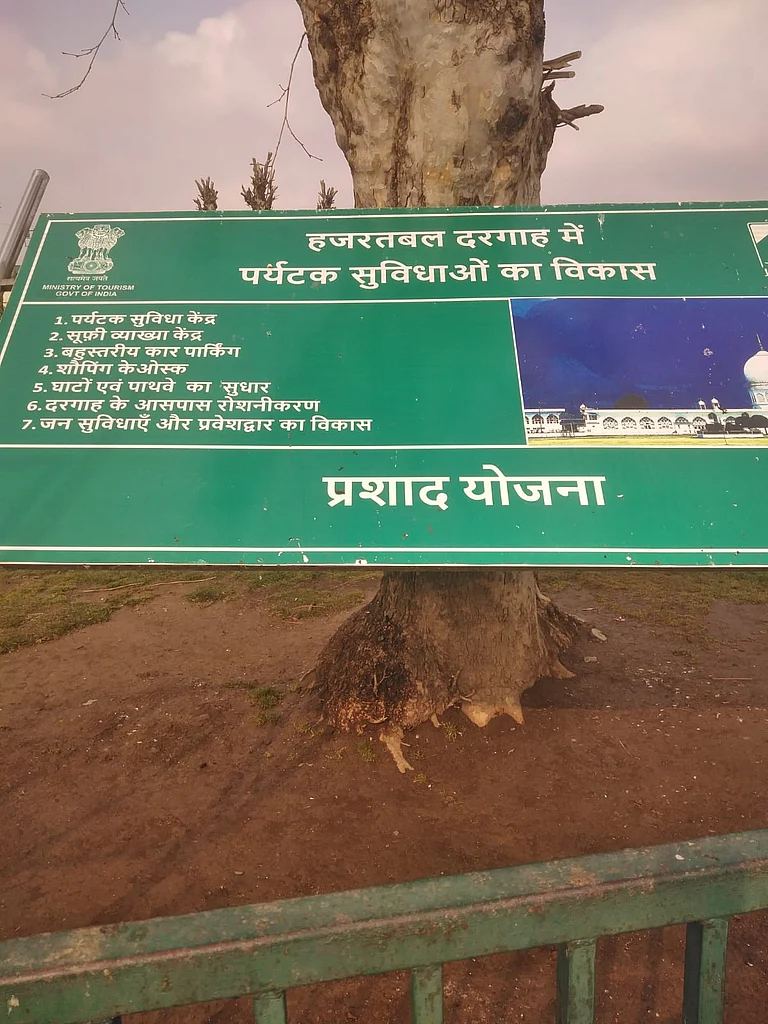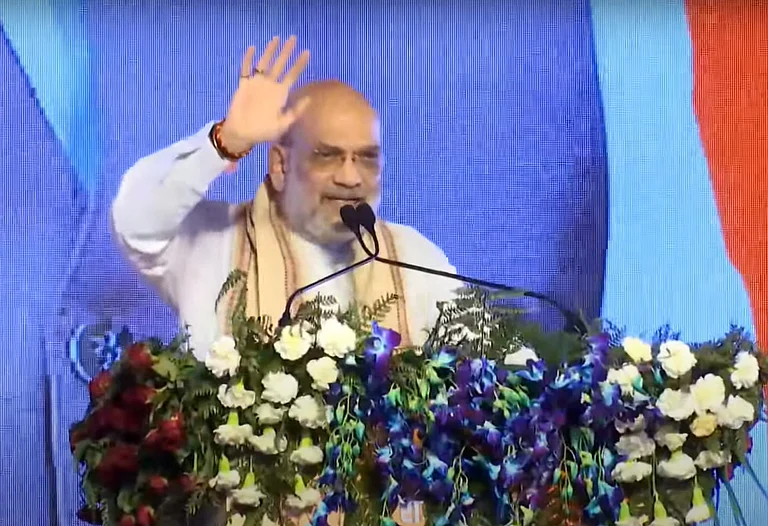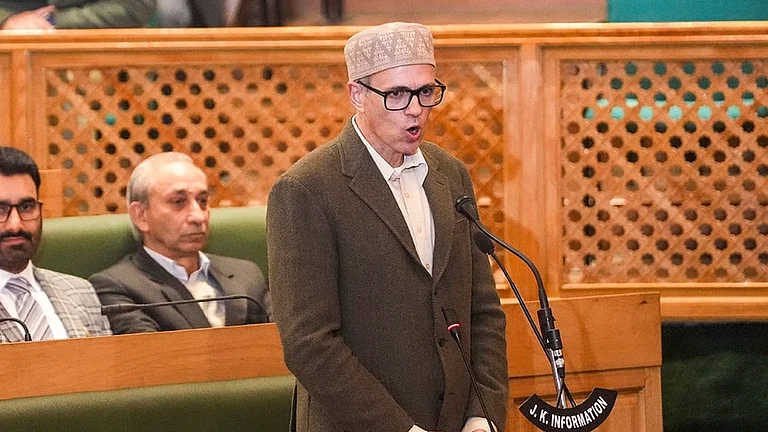As Jammu and Kashmir awaits the results of the Assembly elections on Tuesday, the prospects of a National Conference-Congress government appear promising, if both parties can secure around 50 seats combined. National Conference (NC) insiders say Omar Abdullah, vice president of the party, will lead the coalition and be the next Chief Minister of Jammu and Kashmir.
“We gave our best, presented our manifesto, and made people aware of the importance of their vote. We are confident that the people responded positively and came out to vote for the NC-Congress alliance,” says NC senior leader Tanveer Sadiq.
“The people have cast their votes, and the verdict now lies in the machines. We hope that tomorrow’s results will bring a new dawn for the people of Jammu and Kashmir in every aspect, and we can finally see a return to normalcy,” Sadiq adds.
On the other hand, if the BJP manages to capture around 30 seats, primarily in Jammu, it might seek support from some parties in Kashmir and independent candidates whom it tactically supported, to form the government. With five nominated MLAs possessing voting power expected to support the BJP, the party may be well-positioned to try its luck. BJP state unit president Ravinder Raina says the party will manage 35 seats on its own and with support from 15 independent candidates in the Valley it would be in a good position to form the government. Analysts here say if the BJP remains below 30, it will be difficult for the party to secure the numbers.
This time, all other political players in Kashmir, including Independents, have tried to position themselves as “farthest from the BJP” and even ridiculed each other for being allies of the BJP in the past. What their position is after tomorrow’s results remains to be seen.
While elections were held for 90 seats in Jammu and Kashmir, the Lieutenant Governor is supposed to nominate five members to the Assembly, including two women, two Kashmiri migrants, and one refugee from Pakistan-occupied Jammu and Kashmir (PoJK).
The delimitation commission report in 2022 divided the J&K Assembly into 47 seats for Kashmir and 43 for Jammu. Previously, Kashmir had 46 seats and Jammu. 37. The commission also recommended adding the five nominated MLAs, raising the total number of seats to 95 and taking the majority mark to 48.
Now, the National Conference-Congress alliance must secure 48 elected MLAs to form a government. In contrast, the BJP would need only 43 elected MLAs, as it is assured of the support of the five MLAs nominated by the Lieutenant Governor, a Centre-government appointee.
The issue of nominated MLAs has perturbed Congress and the National Conference. There are sure to be huge debates on this in in the coming days, making it the most contentious issue in the J&K political scene.
Congress has voiced its opposition saying it must be the prerogative of the elected government to nominate five members and not the LG alone.
J&K Pradesh Congress Committee president Tariq Hameed Karra on Sunday said that the BJP’s move to recommend five members for the Legislative Assembly is “undemocratic and unconstitutional”. He added that nomination of MLAs must be prerogative of the elected government and Council of Ministers.
The National Conference is on the same page on nominated candidates. “The LG does not have the authority to unilaterally appoint members to the Legislative Assembly. This falls under a specific entry in the State List of the 7th Schedule, where the LG is required to act based solely on the ‘aid and advice’ of the Council of Ministers from the incoming government,” says senior leader Sadiq.
Unlike Jammu, the Kashmir Valley’s 47 seats saw heated contest among different political parties, including National Conference, Peoples Democratic Party, Awami Ithad Party, Peoples Conference, some Independent candidates and others. The contest in the Jammu belt – in Jammu, Kathua, Samba and Udhampure districts – was mostly between the BJP and the NC-Congress alliance.
Realising the urgency of meeting the target of 48, the Congress party says its doors are open to like-minded parties and persons. The Congress has also room for rebel Congress candidates who had earlier joined Ghulam Nabi Azad's the Democratic Progressive Azad Party and then fell out with it and the Peoples Democratic Party.
The National Conference, too, is cautious of the numbers. Party president Dr Farooq Abdullah welcomed the Peoples Democratic Party’s statement that it is ready to support a National Conference-Congress coalition government. The PDP expects to secure ten seats in the Valley.
BJP leader Sofi Yousuf told Outlook that the saffron party will form the government independently without support from the National Conference or the Peoples Democratic party. “We don’t need NC and the PDP to form the government. Our 19 candidates are contesting from Kashmir and we will win at least 3 to four seats from the Valley. In those seats where we didn’t contest, we supported independent candidates and smaller parties, and we are optimistic they will secure 12 seats; and with it we expect to reach 50 seats with 35 to 37 from Jammu to establish our government with our Chief Minister.”
Meanwhile, there was much chest-thumping by the administration led by the Lieutenant Governor and the BJP over the voter turnout in the assembly polls. It was 63.45%, a slight decrease from the 65.52% recorded in the 2014 elections. This is the first Assembly election after the abrogation of Article 370 on August 5, 2019, and the bifurcation of J&K into two union territories, J&K and Ladakh.
The elections, conducted over three phases, began on September 18 with 24 seats contested primarily in South Kashmir. The second phase, held on September 25, covered 26 seats, while the final phase on October 1 included 40 seats-24 in Jammu and 16 in North Kashmir. This represented a shift from previous elections, where polling in South Kashmir typically took place in the last phase, as North Kashmir was often expected to have higher voter turnout and usually voted first.
Exit polls released Saturday showed a strong position for the National Conference-Congress alliance to secure a significant share of the seats. The BJP is projected to improve on its 2014 tally of 25 seats, while the PDP, which won 28 seats in 2014 polls, is likely to win less than 10 this time. The parties like Apni Party, Awami Ittehad Party, People’s Conference, and Democratic Progressive Azad Party are likely to secure around 10 seats together alongside Independents.


























